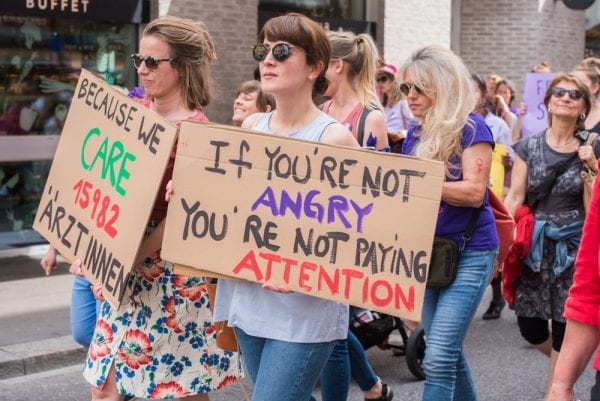Across towns and major cities, masses of women turned up and in the capital Bern, female law makers also joined the movement.
“June 14, 2019, enters the recent history of Switzerland as the biggest political event. Considering the whole day, several hundred thousand women took part in actions, strikes and walkouts,” read a statement from USS, an organisation comprising 16 different unions.
The demonstrations took shape in different way across the country. In Lausanne, women lit a massive “bonfire of joy” to kick start the evening and rang the bell from city’s cathedral; while in Zürich, women wheeled an oversized pink clitoris around the city centre.
“Wages, time, respect,” was the key slogan of the strike, designed to emphasise the ongoing barriers for women in Switzerland– particularly those of migrant background.
The Global Gender Gap Report compiled by the World Economic Forum listed Switzerland as 20th in the world. Scandinavian countries Iceland, Norway, Finland and Sweden took out the top four, while other Western European countries like France and Germany also lead Switzerland by a considerable margin in places 12th and 14th respectively.
Similar to Australia, (which incidentally was ranked 39th in the report while New Zealand came in 7th) Swiss women face significant barriers when it comes to parental leave. Women are allocated 14 weeks paid government leave (similar to Australia’s 18 week system) but fathers are afforded nothing. This enables employers to unfairly discriminate against female workers.
Cost of living pressures in Switzerland also continue to be amongst the highest in the world, with exorbitant childcare in major cities a massive deterrent for women seeking to return to work.

